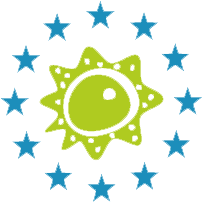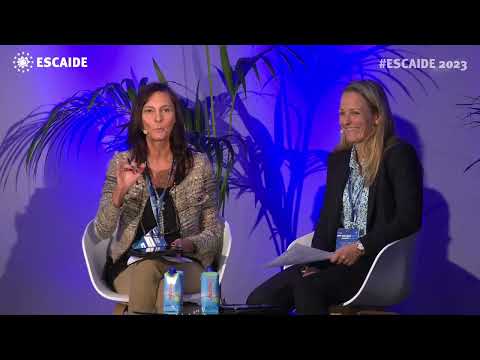Risk communication, community engagement and infodemic management (RCCE-IM) can save lives: success stories
The COVID-19 pandemic has shown, like never before, that risk communication, community engagement and infodemic management (RCCE-IM) is at the heart of effective health emergency response. Health emergency responders need to effectively communicate and engage with affected communities, and communities at risk, if they are to win their trust. Having this trust is crucial not just to persuading communities to adopt protective behaviours (e.g. hand hygiene, distancing, masking) but also to winning their support for interventions such as contact tracing, isolation of cases or vaccination.
Leading academics and expert practitioners from across Europe and Central Asia will:
- overview the literature that informs risk communication, community engagement and infodemic management;
- present evidence on the impact these interventions had in preventing mortality and morbidity during the COVID-19 pandemic and other recent health emergencies;
- present examples of rapid evidence generation to inform RCCE-IM from the COVID-19 pandemic and other recent health emergencies;
- discuss how epidemiologists, social scientists and RCCE-IM can further strengthen cooperation on rapid evidence generation to inform their emergency response.
Date and time
Thursday, 23 November, 15.30 - 16.30 CET
Speakers
Audra Diers-Lawson
Audra Diers-Lawson (PhD, 2006 University of Texas-Austin) is a Professor of Risk and Crisis Communication and Head of the PhD in Communication and Leadership at Kristiania University College in Oslo, Norway.
With more than 35 scientific publications in the last five to six years alone, editing the Journal of International Crisis and Risk Communication Research, serving on editorial boards or as a reviewer for more than 20 journals, and serving as a section Vice-Chair and Chair for the Crisis Communication Division of the ECREA, Diers-Lawson is a leader in the field of risk and crisis communication. Her research focuses on the connections between risk, crisis, stakeholders, and organizations.
Diers-Lawson’s monograph, Crisis Communication: Managing Stakeholder Relationships (2020) brought together more than 50 years of research on risk and crisis communication to identify important common themes, evaluate theory and practice, and articulate a comprehensive argument for adopting a stakeholder perspective in risk and crisis communication. She and co-editor Stephen Croucher published Pandemic Communication which is an anthology of some of the top scholars in communication to tackle the question, ‘What is pandemic communication?’ from their own sub-field’s perspective. Finally, she translates her research for practice with collaborations and applied research projects with organizations like the EU, World Health Organization, and Asia-Europe Foundation.
Richard Amlôt
Prof. Richard Amlôt is Deputy Director in the Science Group of the UK Health Security Agency and leads the Behavioural Science and Insights Unit (BSIU). He leads a team conducting applied research and evaluation for UKHSA and its partners, applying insights from the behavioural and social sciences to a range of health protection topics, with a particular focus on public health emergency preparedness and response.
He and his team have conducted responsive projects concerning the behavioural and psychological impacts of a range of major public health emergencies, including major flooding events in the UK, the Ebola outbreak in West Africa, the Novichok attack in Salisbury, and the COVID-19 response. He is also the UKHSA Director of the Health Protection Research Unit in Emergency Preparedness and Response at King’s College London.
Rui Gaspar
Rui Gaspar has a PhD in Social Psychology from the University of Lisbon. He is Associate Professor at Lusófona University, coordinator of the master’s in Social and Organizational Psychology and Principal Investigator at the HEI-Lab: Digital Human-Environment Interaction Lab.
He is member of the World Health Organization (WHO-Europe) Technical Advisory Group on Risk Communication, Community Engagement and Infodemic Management (RCCE-IM), technical consultant in Behavioural Sciences and Health Literacy for the Portuguese Directorate-General for Health, scientific committee member (Risk Communication panel) at the Portuguese Food Safety & Economic Authority.
He is past-President of the Society for Risk Analysis – Europe (SRA-E), past member of the Behavioural Sciences Task Force to fight COVID-19, nominated by the Portuguese government, and former Associate Editor of the journal Human Behaviour & Emerging Technologies. His research focuses on Emerging Risks Perception, Risk Communication and Crisis Communication, and Information and Communication Technologies use during crisis and social emergencies.
Dilek Aslan
Dr. Aslan graduated from Hacettepe University, Faculty of Medicine (HU-FoM) in 1994 and completed her compulsory medical services in different parts of Türkiye between 1994-1996. After completing a four-year training program at HU-FoM Department of Public Health (DoPH), she became a public health specialist in 2000.
She completed her post-specialty training by conducting a 10-month fellowship program funded by the USA-National Institute of Health, Mental Health and Developmental Disabilities Program (Fogarty International Program). In the first part of the project, she worked in USA at a Harvard University affiliated Boston’s Children’s Hospital (From July to December 2002). During this period, she completed some courses at the Harvard T.H. Chan School of Public Health. Dr. Aslan also completed her MSc training at the HU Health Sciences Institute-Nutrition and Food Sciences Program in 2004.
Dr. Aslan is currently working as a full professor of public health at HU-FoM- DoPH.
Fatjona Kamberi
Fatjona Kamberi has a Ph.D. in health sciences and is an associate professor and researcher at the University of Vlore, Albania. She is the Director of the Faculty of Health's Scientific Research Center for Public Health.
Throughout the COVID-19 pandemic, she has been a very active researcher, contributing to several studies with international collaboration. She was chosen among 386 authors from 112 countries and territories to join the Consensus Statement Panel to end the COVID-19 public health risk.
During her 15 years of professional experience, her studies and teaching in public health have focused on e-health, behavioral insights, chronic care and self-management, awareness, and risk communication (human papillomavirus, COVID-19, and mpox) among young adults. Working as an external expert for COST (European Cooperation in Science and Technology), EU4Health (European Commission), and as the review editor for Public Mental Health (Frontiers in Psychiatry, Frontiers in Public Health, and Frontiers in Sociology) has improved her expertise and professionalism while also keeping her up to date with the most recent issues in public health and care.
Her demanding personality, passion, and desire for knowledge have driven her to work hard and seek professional advancement. She considers herself a professional with a strong desire to contribute time and energy to this field, and she is a highly motivated person.
Aizhana Dzhumalieva
Aizhana Dzhumalieva (Ph.D., DBA RANEPA) is Media Literacy Course Lead Expert for AUCA in the Open Society University Network (OSUN) Project. Along with Arizona State University (ASU) and Al-Quds Bard, she is developing and piloting online courses for Media Literacy, Information, and Communications for all OSUN countries and institutions.
Furthermore, she is Project Coordinator of "Safe Havens and Space", the Nonfiction Residency Program for CIS countries, The Open Society Foundations (OSF) through the Program on Independent Journalism London, UK. And she is Program and Curriculum Director of the "Central Asian Journalism Summer Institute".
Mrs. Aizhana Dzhumalieva teaches "Public Affairs and Communications," "Master Thesis Research," "International Media Standards," and other courses for undergraduate and graduate levels. Her courses within the "P.R. & Marketing" concentration are accredited by the International Advertising Association, New York, US.
Furthermore, she is:
- Advisory board member at Global Commons;
- Member of the World Health Organization (WHO-Europe) Technical Advisory Group on Risk Communication, Community Engagement and Infodemic Management (RCCE-IM);
- Member of the Independent Union of Journalists of the Kyrgyz Republic;
- American Chamber (AmCham), and Central Eurasia Leadership Alliance (CELA) .
Moderators
Cristiana Salvi
Cristiana leads the Risk Communication, Community Engagement and Infodemic Management Unit of the WHO Regional Office for Europe’s Health Emergencies Programme.
Her experience in communication is 25 years long including over 20 years with the WHO. It ranges from communicable and non-communicable diseases to environmental risks, outbreaks and humanitarian crisis and includes country support in coordination with a wide range of partners for emergency preparedness and response.
She has been deployed in health emergency settings for 20 years supporting countries in Europe, Asia and Africa, and has been heading the RCCE-IM response to multiple emergencies in the European Region in the last years.
This experience has been translated in launching RCCE-IM as a technical area in the European Region and building countries’ capacities through innovative platforms.
She has also initiated the civil society organization engagement and infodemic management in the Region, has built regional and country partnerships, and has advanced evidence generation and sharing on RCCE-IM. The first WHO Technical Advisory Group on RCCE-IM that Cristiana has established, positions this area of work as an evidence-based public health intervention at the core of the emergency cycle.
Further than RCCE-IM, her specialties are strategic communications, media, advocacy, training, and health diplomacy. Cristiana speaks four languages – Italian, English, French and Spanish – and embeds emotional intelligence in all the work she does.
Laura Woodward
Laura Woodward is Head of Risk Communications and Emergencies at the UK Health Security Agency. Laura has been a professional communicator for 20+ years.
At UKHSA and its predecessor, Public Health England, Laura has led teams working on the communications response for a range of public health emergencies including Covid-19, mpox, Ebola, avian influenza, CBRN, cyberattacks and a variety of more day-to-day health hazards.
Laura’s current role focuses on bringing all communications disciplines together coherently with behavioural science input, public health expertise and guidance and the reality of operational delivery.

